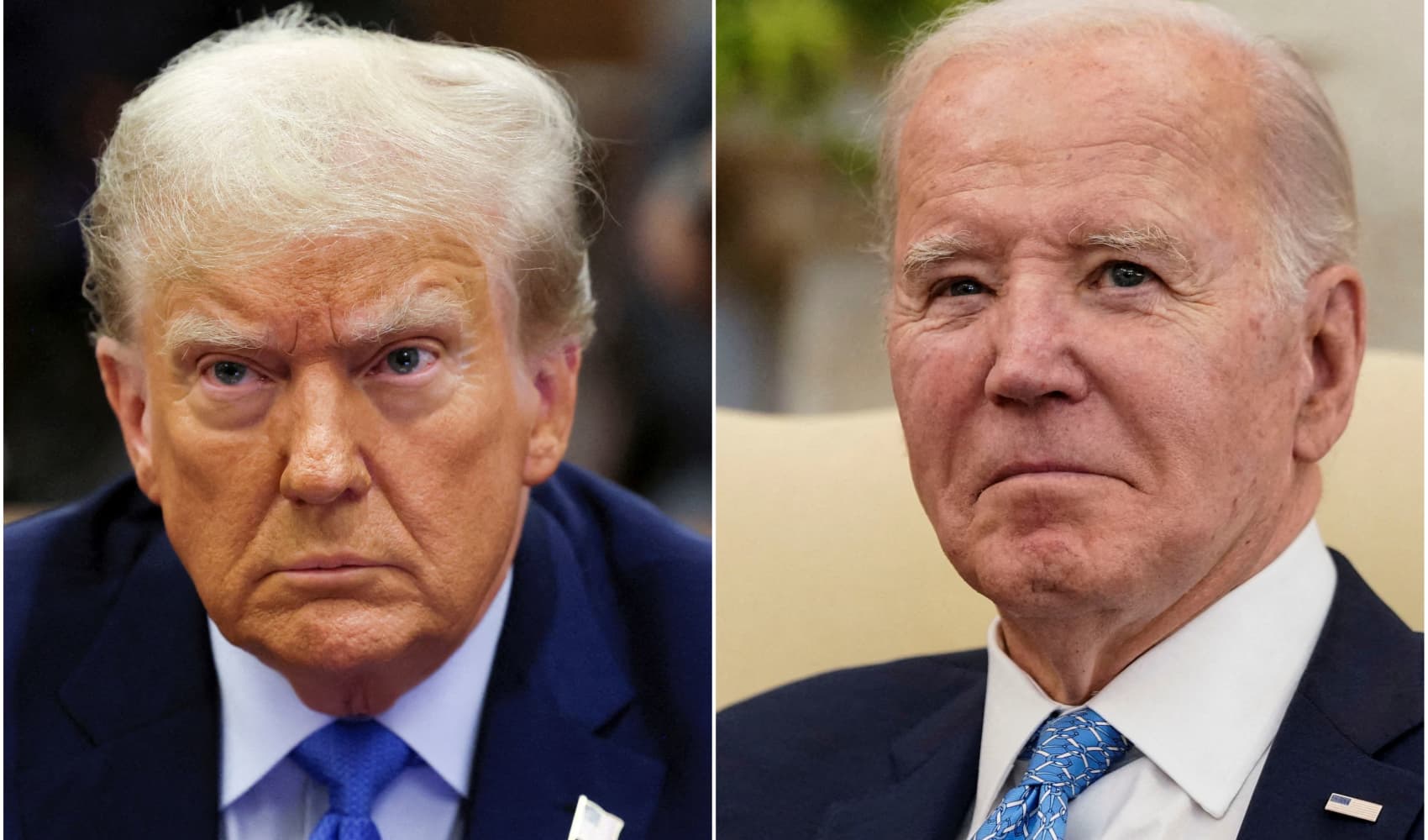A New York jury's historic conviction of Donald Trump on felony charges means his fate is now in the hands of the judge he's repeatedly ripped as "corrupt" and "incompetent."
Two experts told NBC News that it's unlikely Trump will be imprisoned based on his age, lack of a criminal record and other factors — and an analysis of thousands of cases found that very few people charged with the same crime receive jail time. But a third expert told NBC News he believes it is "substantially" likely Trump could end up behind bars.
WATCH ANYTIME FOR FREE
>Stream NBC10 Boston news for free, 24/7, wherever you are. |
Trump was convicted on 34 counts of falsifying business records, a class E felony that is punishable by a fine, probation or up to four years in prison per count. During the trial, Judge Juan Merchan threatened to put Trump behind bars for violating his gag order, but it’s unclear if the former president will face similar consequences now. It's expected that any sentence on the charges would be imposed concurrently, instead of consecutively.
Former federal prosecutor Chuck Rosenberg, an NBC News analyst, said it's unlikely that Merchan would sentence Trump, 77, to any jail time, given his age and his status as a first-time, nonviolent offender. "I’d be very surprised if there's any sentence of incarceration at all," Rosenberg said. “Of course, he did spend a good bit of time insulting the judge who has the authority to incarcerate him.”
Get updates on what's happening in Boston to your inbox. Sign up for our >News Headlines newsletter.
The next step for Trump at this point is his sentencing, which is set for July 11.
Arthur Aidala, a former prosecutor in the Brooklyn district attorney's office who's now a defense lawyer, said the judge will likely use some of the time before sentencing to research similar cases to determine what the median sentence is.
"He wants to know before he sentences someone what the typical sentence is," Aidala said, and would consider other factors like Trump's age and lack of criminal record, while also taking into account the lack of injury caused by the crime. Aidala said he believes whatever punishment the judge comes up with would be "a non-jail disposition."
An analysis conducted by Norm Eisen, who worked for House Democrats during Trump’s first impeachment, found that roughly one in 10 people who have been convicted of falsifying business records are imprisoned, and those cases typically involved other crimes.
Ron Kuby, a veteran New York criminal defense lawyer, took a different view.
“Judge Merchan is known for being a harsh sentencer when it comes to white-collar crimes committed by people who have wealth and privilege and power,” Kuby said.
Kuby added that he believes "it is substantially likely Judge Merchan will sentence Trump to jail or prison time," despite the logistical and practical complications that locking up a person with Secret Service protection would entail.
The lawyer said that's because the criminal scheme went on for over a year, and included a number of bad acts on Trump's part.
“It’s an entire course of conduct he was involved with — not just one bad decision,” Kuby said.
Trump, however, likely doesn't have to worry about missing the Republican National Convention, where he's expected to accept the party's nomination, even though it's taking place just days after his sentencing. Kuby said he'd likely be able to remain free while he appeals the conviction.
Trump's behavior during the trial, including his flouting Merchan's gag order by making comments about witnesses and the jury, will likely not be a factor in the sentencing decision, Kuby said. It's also highly unlikely that comments that appeared to be aimed at sidestepping the gag order by Republican officials who attended the trial as Trump's guests will figure into the judge's reasoning, Kuby added.
"If the judge is smart he'd stay away from that," Kuby said. "The best way for judges not to get reversed in a sentencing is to stick to the facts and circumstances of the crimes and conviction."
Rosenberg said that despite Trump’s frequent criticisms of the judge, which he likened to “a batter who’s been yelling at the umpire from before the first pitch,” Merchan appeared to run “a clean and fair trial.”
Both Rosenberg and Kuby agreed that Trump would appeal the verdict. Kuby said that could potentially delay Trump from serving whatever punishment the judge doles out for years, even if the appeal is ultimately unsuccessful.
His first appeal will be to the state Appellate Division, a midlevel appeals court, and they will almost certainly not decide the appeal until after the November election, Kuby said. If he loses there, he could then appeal to the state's highest court, the Court of Appeals. A loss there would be followed by a request to the U.S. Supreme Court to hear the case.
If all that fails, Kuby said, he could then try turning to federal court in another attempt to eventually get the case before the Supreme Court.
The appeals process typically takes a long time — Kuby said he had one client who staved off prison time for six years — but there's another potential complicating factor in this case.
"If he becomes president of the United States he cannot be incarcerated in a state prison" while he's in office, Kuby said, because it could prevent him from fulfilling his constitutional duties. If he lost his appeals, "by the time he leaves office — if he leaves office — he'd be ready to be incarcerated," he said.
This article first appeared on NBCNews.com. Read more from NBC News here:



